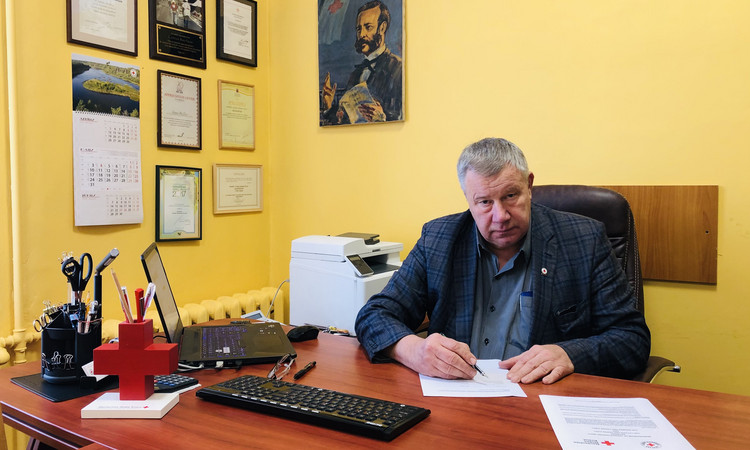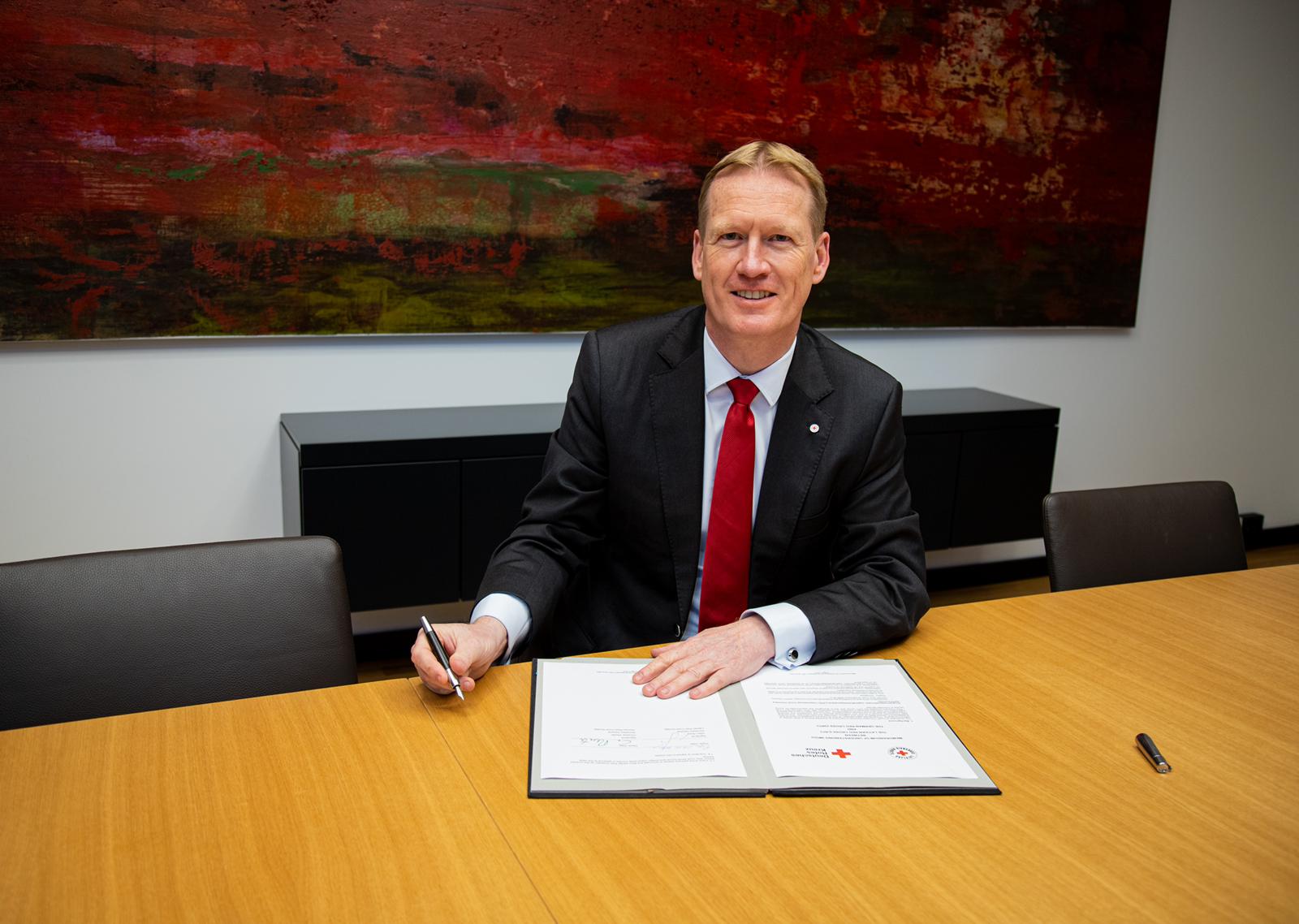
Photo: the signature was made by Uldis Likops, Latvian Red Cross Secretary General in Riga, Latvia
With the signing of a Memorandum of Understanding (MoU) between the Latvian Red Cross (LatRC) and the German Red Cross (GRC), both national societies contribute to strengthening their cooperation with regards to International Voluntary Services.
GRC volunteers in Latvia as of 2022
The outcome of these efforts is a strengthened cooperation with the LatRC: as part of their Voluntary International Year, GRC volunteers will have the opportunity to spend their learning and educational service in Latvia from September 2022 onwards. In the long term, further development of the cooperation is planned in order to also enable young volunteers from Latvia to get involved in Germany.
„A cooperation between the Latvian Red Cross and the German Red Cross has been put in place for many years. We are delighted to extend and continue our partnership to voluntary services, thus strengthening the structures to better align services to the needs of vulnerable people. In the future, GRC volunteers will have the opportunity to work in LatRC`s structural units for a longer period, and vice versa LatRC`s volunteers will be able to gain international volunteer work experience in Germany.” Uldis Likops, Secretary General of the Latvian Red Cross
MoU as a basis for future cooperation
Initiated and closely accompanied by the Coordination Office for International Voluntary Services in the GRC, experts from various GRC regional branches have already been in close exchange with the LatRC since summer 2019. The elaboration and final signing of a MoU represents an important milestone for future cooperation with the LatRC. In the MoU, both parties agree on the common values and principles and provide the scope and framework for its practical implementation.
“Memorandaum of Understanding in the sense of partnership-based declarations of intent enable binding and resilient cooperation. This agreement will not only allow for a high level of quality and security within the international voluntary services in the GRC, but also ensures a clear alignment of voluntary services with the principles of the international Red Cross and Red Crescent movement.” Joss Steinke, Head of Youth and Welfare at the GRC.
Photo: the signature was made by Christian Reuter, German Red Cross Secretary General in Berlin, Germany
On-site exchange of experts to take place in 2021 if possible
A long-planned visit to Latvia – with the aim of an exchange of experts – has already been postponed several times due to the pandemic. Once all travel restrictions are lifted, this exchange is to be rescheduled, so that the GRC experts meet and exchange with their future partners as well as understand their local structures even better.
Background: A Memorandum of Understanding (MoU) is a declaration of intent between two or more parties. In the context of the International Voluntary Services within the GRC, these parties are the GRC – represented by the DRC Secretary General – and another National Society of the International Red Cross and Red Crescent Movement. MoU within the Red Cross movement usually indicate an intended common line of action and set out the basic principles as well as overarching goals of current or future planned cooperation. These include, for example, the principles of the Red Cross and Red Crescent as well as the funding bases of the respective programs. In the practical implementation of International Voluntary Services activities, these agreements are binding for all parties involved (e.g., GRC branches, partner organizations, assignment sites and volunteers). To adequately respond to changes with regards to funding programs or other structural changes MoUs are updated regularly. As such, the preparation of a MoU thus ensures a high degree of content-related examination of the international learning and education service. The quality and commitment of the respective cooperation are thus increased, and the Red Cross/Red Crescent structures involved are strengthened in the long term. Through regular updating, cooperation can also be readjusted and further developed in a processual manner.


